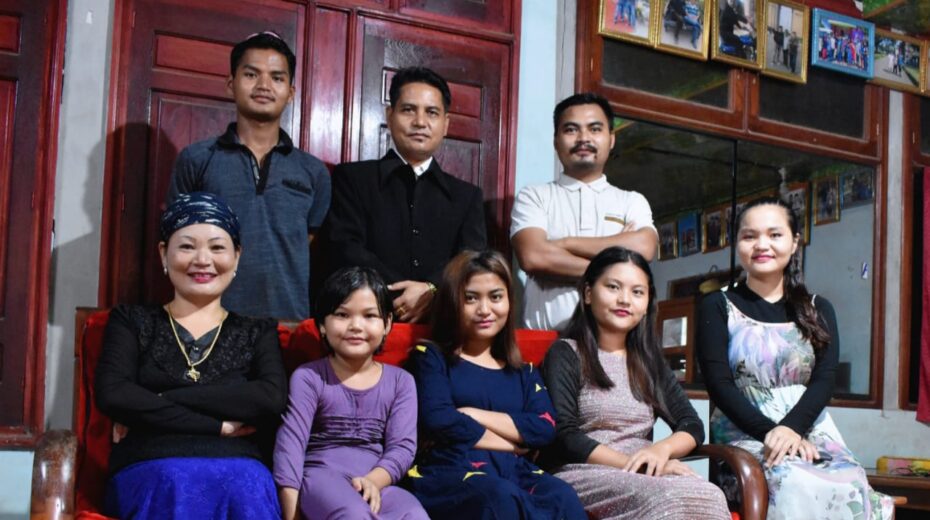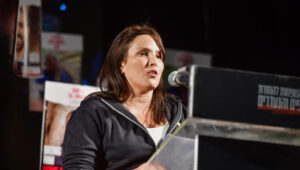In the next couple of weeks on December 14 a group of 253 Bnei Menashe is coming home after a two-year hiatus, but this time in the shadow of the coronavirus pandemic. The last aliyah organized by Shavei Israel, the organization that brought “The Lost Tribe” of the Ethiopian Beta Israel, was back in 2018.
For the Bnei Menashe, moving home from India to a new country and a new culture is one of the most stressful and exciting life-events that can be experienced. However, no matter what kind of challenges or difficulties they might face, the enthusiasm of these Israelite Jews living in exile knows no bounds. They are just a body full of adrenaline!

Yochanan Phaltual
Six years ago in 2014, I made aliyah to Israel with my family leaving behind relatives and friends, which was difficult as they too were counting the days until their dreams of living in the Promised Land might be fulfilled.
Aliyah fervor is always unique. People who have already made aliyah are constantly telling friends and relatives to “Come home – We are waiting for you,” because making aliyah is not really about leaving India, our home in the Diaspora. It’s more about returning to our ROOTS.
The Bnei Menashe spread throughout the northeastern states of India, but generally live in the states of Mizoram and Manipur. Simeon Vaiphei is one of the blessed families to join the 253 new immigrants on 14 December. Other groups will arrive afterwards and a total of 722 members of the tribe will come to Israel. Simeon, his wife Rivka Kim and their six children were overwhelmed with joy to be finally included in the list for aliyah. It has always been their dream to come up to Israel ever since they got married 25 years ago. Though a successful international timber trader in Manipur, the border state with Myanmar, Simeon is determined in his decision to leave behind their comfortable life and venture into the unexplored new land of Israel.
“I am fully aware of my decision. It’s probably one of the most difficult decisions anyone could make – to uproot oneself and one’s family from the comfort zone and stretch out to a new place to start a whole new life,” said Simeon. He added that they were spiritually and psychologically prepared and overwhelmed with excitement to go home in Israel.
And of course, the truth is that one doesn’t need a reason to go home.
For Menashe Vaiphei, the eldest son of Simeon, one of the most important mitzvot in the Torah is to live in Israel. “For me it is very ideological. I wanted to be part of the nation by serving in the Israeli army,” said Menashe. Last year he finished Computer Engineering from the National Institutes of Technology (NIT) in India and is looking forward to studying and working in a related field in Israel.
Like the Vaiphei family, moving to Israel is the right decision for all the Bnei Menashe. Despite many challenges, they are willing to return home to Israel and become one of the building blocks of the Jewish nation.
One special aspect to this coming aliyah is the stringent health regulations due to the coronavirus pandemic. Shavei Israel in collaboration with Israel’s Health Ministry will provide mandatory guidance for the overall aliyah process and for the exceptional circumstances caused by coronavirus.
Negative Covid-19 test results will become another passport of “Aliyah 2020.” All immigrants are required to carry proof of a negative test taken within two days of their departure from New Delhi International Airport. All immigrants upon arrival at Ben Gurion International Airport will be quarantined for 14 days under the supervision of the IDF Home Front Command in a New Immigrant Absorption Center.
In these uncertain times, notwithstanding the coronavirus, the enthusiasm and passion to reach their new home far outweighs any temporary inconvenience the Bnei Menashe may encounter.
Their first home in the homeland will be the Absorption Center in Kibbutz Nordiya, located near Netanya, in the Northern Central District of Israel. In addition to housing, they will spend their time studying Judaism until everyone completes their formal conversion, which normally takes three months. An intensive Hebrew language Ulpan course is a must to help ease the adjustment to their new home.
The Bnei Menashe, from a halachic, or Jewish law perspective, are very distinctive. Over the course of their exile, the generations intermingled with the nations among whom they lived. Consequently, despite the traditions they maintained, rabbinical authorities require them to undergo a complete process of conversion to Judaism.
In March 2005, as a result of Shavei Israel’s efforts under Chairman Michael Freund and Israel’s former Chief Sephardic Rabbi Shlomo Amar, the Bnei Menashe were formally recognized as descendants of Israel. From the perspective of Jewish law, the Bnei Menashe are considered “Zera Israel – the seed of Israel.”
In fact, over the past 18 years more than 4,500 Bnei Menashe have made aliyah due to the untiring efforts of Shavei Israel. Now, Israel’s Minister of Aliyah and Absorption Pnina Tamano-Shata has joined the efforts to bring another 722 Bnei Menashe home to Israel. Thanks, and deep appreciation to Minister Pnina and Chairman Freund. We, the Bnei Menashe, all know how busy they have been working on this project dubbed “Operation Menashe” after the namesake of the tribe from which they descended.
Only in the Land of Israel could Avram become Avraham, our Patriarch, and only in the Land of Israel could he and his descendants achieve their destiny. Otherwise, no matter what, we feel we are incomplete.
See you soon folks in the Promised Land! Have a good trip!















